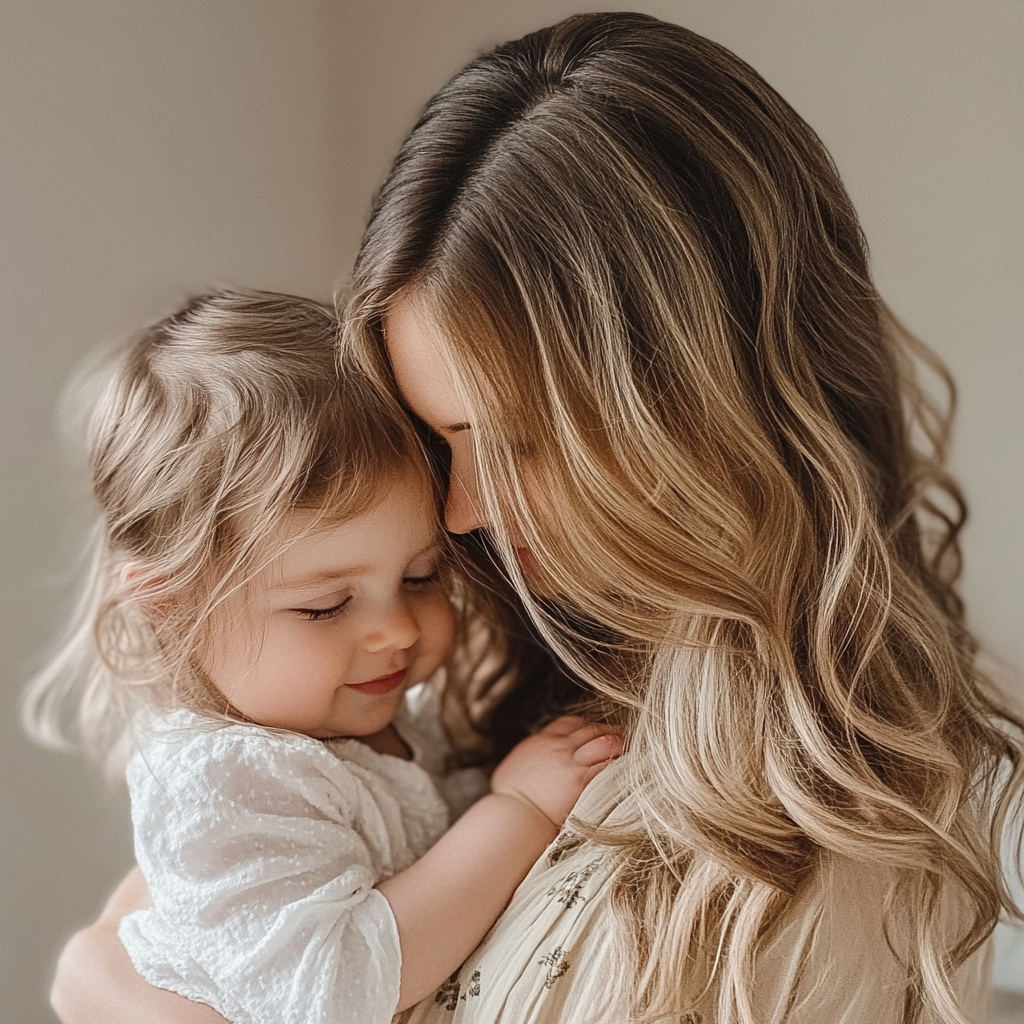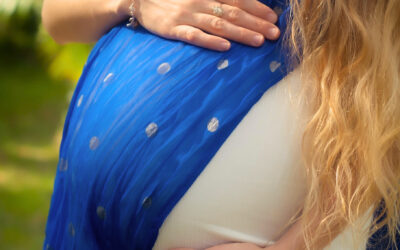Postpartum Hair Loss

Becoming a mother is one of life’s most beautiful experiences, but it also comes with its fair share of challenges—one of which is postpartum hair loss. Many new mothers find themselves shocked and frustrated as they lose clumps of hair, often months after giving birth. This natural but disheartening experience can leave a new mother feeling self-conscious and helpless as the clumps of hair continuously fall out when brushing or washing hair in the shower.
The Emotional Toll of Postpartum Hair Loss
Hair is deeply tied to our identity, and losing it—especially in large amounts—can feel overwhelming. After months of radiating the beautiful pregnancy glow, postpartum hair loss can hit hard. Hormonal changes are the main culprits, as estrogen levels drop dramatically after childbirth. This shift signals your hair to move from its growth phase to a shedding phase, leading to noticeable thinning.
Adding to the frustration, stress from adjusting to life as a new mother can exacerbate the problem. Sleepless nights, endless responsibilities, and the mental toll of caring for a newborn can weaken your immune system. When the immune system is compromised, you become more susceptible to illnesses—and sickness can further impact your hair health, causing even more shedding. It’s a cycle th t feels impossible to break, but there’s hope.
Fortunately, there are some basic things we can add to our self care rituals that help.
- Be Gentle with Your Hair
Avoid hairstyles that are harsh on your hair: Minimize tight ponytails, braids, or buns that put stress on the hair and scalp.
Use a wide-tooth comb: or soft brush like this one ***
Avoid heat styling: Limit the use of blow dryers, curling irons, and straighteners to prevent further damage.
- Optimize Your Nutrition
Protein-rich diet: Hair is made of keratin, so ensuring your diet has enough healthy proteins like beans, nuts, seeds and protein packed dairy products like cottage cheese.
Iron and zinc: Low levels of these minerals can exacerbate hair loss. Add leafy greens, lentils, and fortified cereals to your meals.
Biotin and B-complex vitamins: These vitamins support hair health. Biotin is found in almonds, and sweet potatoes.
Omega-3 fatty acids: Found in healthy fats like flaxseeds and walnuts will help nourish hair follicles.
Stay hydrated: Drink plenty of water to keep your scalp healthy.
- Postpartum Nutrition
Following a healthy diet free from pesticides with ayurvedic principles will support your overall health, especially hair growth. See my article on Ayurveda **
Prenatal vitamins: Most of us are careful to remember taking daily prenatals. Yet after birth we tend to put our needs last, as the duty of a mother calls to prioritize the baby. Learning how to balance our self care and prioritize ourselves is key. Continue to regularly take your prenatal vitamins, especially if you’re breastfeeding, as they can support overall health. My Favorite Pre natal and Post natal vitamin Brandm***
- Hair Care Products
Mild shampoos: Use Natural sulfate-free and paraben-free shampoos that won’t strip your scalp of its natural oils. This is my favorite Shampoo **
Hair serums and hair masks: My favorite is the Tachyonized Hair Tonic
To combat postpartum hair loss, nourishing your scalp and strengthening your hair follicles is key.
This is why I use The Tachyon Hair Tonic. Infused with potent natural ingredients and powered by patented Tachyon Technology, this hair tonic is designed to restore vitality to your hair and scalp. Read me
Key Ingredients and their Benefits
- Nettles: Known for their rich content of vitamins and minerals, nettles stimulate hair growth and improve scalp health.
- Horsetail: Packed with silica, horsetail strengthens hair strands and boosts shine, making your hair less prone to breakage.
- Rosemary Oil: A natural stimulant for blood circulation, rosemary oil promotes healthier hair follicles and reduces hair loss.
- Vetiver: This grounding herb soothes the scalp, reducing inflammation and supporting a healthy environment for hair growth.
- Burdock Root: Rich in antioxidants and nutrients, burdock root nourishes hair and helps repair damage.
- Sesame Oil: An excellent base oil, sesame oil deeply moisturizes the scalp, providing a barrier against dryness and hair loss.
The secret to this specific Hair tonic’s effectiveness lies in its patented Tachyon Technology, which enhances the absorption and efficacy of these natural ingredients. This advanced technology ensures the tonic delivers nutrients directly to your scalp and hair follicles, stimulating growth and fortifying strands from the root.The combination of nature and technology makes Tachyon Hair Tonic a game-changer. The carefully crafted natural ingredients address the root causes of hair loss—hormonal imbalances, stress, and nutrient deficiencies— If you’re unfamiliar with Tachyon please read my article on this powerful technology. Be sure to use my Discount Code PURESUCHILIFE for a 15% discount!
5. Scalp Care
Scalp massage: Stimulate blood flow to hair follicles by gently massaging your scalp with your fingers or a soft brush. Scalp massage is a powerful practice that increases blood flow, delivering oxygen and nutrients to your hair follicles. This boosts hair growth, reduces stress, and creates a moment of self-care that every mother deserves.
Take a few moments daily to warm a small amount of Tachyon Hair Tonic between your hands, gently massage it into your scalp in circular motions, and let the natural ingredients work their magic. This ritual not only nurtures your hair but also offers a calming experience to help counteract the stresses of motherhood.
Essential oils: Mix a few drops of rosemary or peppermint essential oil with a carrier oil and massage into the scalp to encourage hair growth. (The Tachyon Hair Tonic has all these goodies in it already)
- Hormonal Balance
Postpartum hair loss is primarily due to hormonal changes, but if it seems excessive your thyroid may be to blame. Conditions like postpartum thyroiditis can contribute to hair loss. I used this supplement from Garden of Life combined with Udos Oil. This combo transformed my thyroid health balanced my hormones and helped my hair stay strong throughout my last two pregnancies. I wish I would’ve known about it with my first two. ***
- Be aware of your emotions and stress responses
Prioritize rest: Adequate sleep helps balance stress hormones.
Practice mindfulness: Techniques like yoga, meditation, or deep breathing can help reduce stress and its impact on your hair.
Ask for help: Accept support from family or friends to reduce the physical and emotional strain of new motherhood.
- Patience is Key
Postpartum hair loss usually peaks around 3-4 months after delivery and starts to improve by 6-12 months. Being gentle with yourself and your hair during this time is essential.
Motherhood is a journey filled with joy and challenges, and postpartum hair loss doesn’t have to be a permanent struggle. Adding in some daily self care rituals for your hair, you can reclaim your confidence and restore your hair’s strength and beauty.



